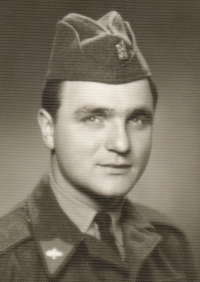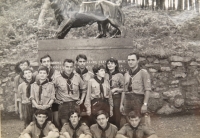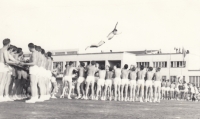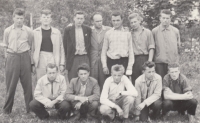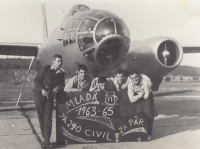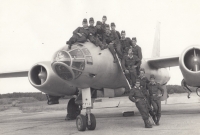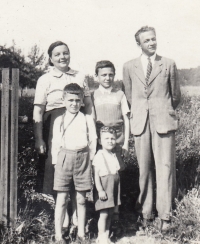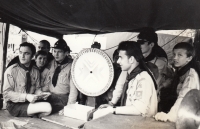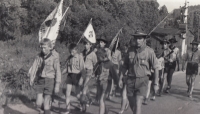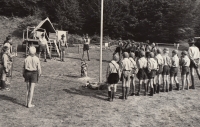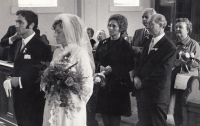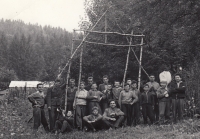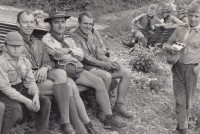It annoyed our comrades that we were gathering and not hiding our religious faith
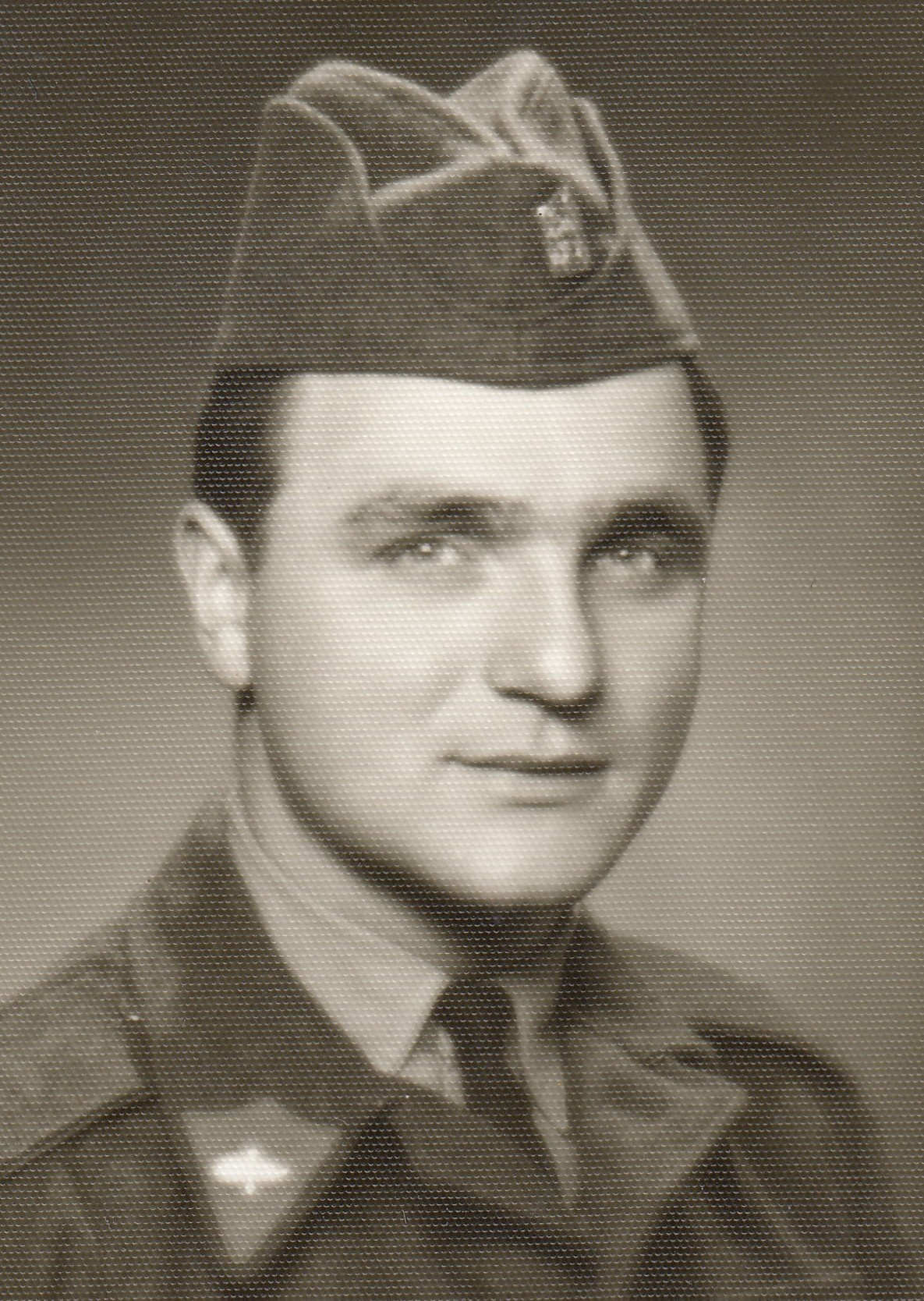
Download image
Vladimír Tomek was born on the 29th of August 1944 in Kunčice u Letohradu, back then still Kyšperka. His mother Růžena (1916-1989) worked as a school janitor and his Father Karel (1912-2003) was a career electrician. He grew up with his older brother Karel, born 1941, and his younger brother Jiří, born 1949. The family had a very active religious life as practicing Catholics. The children attended religious classes, went to religious services at church, where Vladimír even helped as an altar boy, and from 1959 sang in the church choir. It was this unapologetic religious practice that later also significantly shaped the course of his life and even the lives of his later friends. In the years 1958-1961 he studied to become a toolmaker and then worked in Tesla in Jablonná nad Orlicí. He was recalled from his middle school studies after a month by a cadre member, for the reason, that the regime didn’t need management positions to be filled by people, who turn their backs to it. At the start of the 60s he started going to camps with a group of friends under the leadership of Josef Vychytil. These camps weren’t organized, but at their roots were values, that even Scouting recognized: fraternity, honour, responsibility for the collective. After attending mandatory military service in the years 1963-1965, he returned to the Tesla and kept going on trips and summer jobs with his friends. On the 7th of May 1968 he resurrected the Scouting organisation in Letohrad with the help of Josef Vychytil and others. In the summer of this year he joined a group of youths, that started accompanying the services in the church in Letohrad-Orlice with rhythmic songs and guitars. Thanks to this a large number of young people started heading there from both near and far to attend the services, which was not to the taste of their observant comrades. After the 21st of August 1968 and the coming of Warsaw Pact tanks they still managed to organize two Scout summer camps. Vladimír attended both as troop leader. After the ban on Scouting in October 1970 his members transferred over under the Spartan troop in Letohrad. They continued to meet and go on trips and summer jobs. This troop soon came under the supervision of the secret police. Their members were additionally the same as those, that played at the rhythmic masses. The unorganized meeting of faithful youths was unacceptable to the regime. In 1975 a number of the troop’s members were interrogated by the secret police, some where then thrown out of university, others suffered penalties in employment. In September 1975 the Spartan troop was dissolved as an antisocialist cell. But even that didn’t discourage the group of friends from further social meetings, and so they went to family camps with their children until the year 1989. After the Velvet Revolution, still on the 3rd of December 1989, Josef Vychytil called together a meeting to renew the Scouting organization in Letohrad. Vladimír Tomek then spent twelve years leading one of the troops. After the November revolution he also started on a career path in communal politics in Letohrad. In the years 1990-1998 he was a member of the local council, in the years 2001-2006 he became mayor. In the year 1972 Vladimír Tomek married Pavla Faltusová and raised four children, who were born in 1976, 1977, 1981 and 1982 respectively. He considers his faith to be the most fundamental part of his life, which motivates him to never stop trying and to love others as you love yourself. In the year 2021 he still lived in Letohrad.
